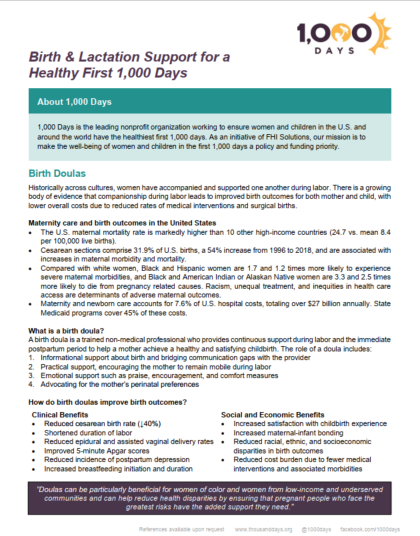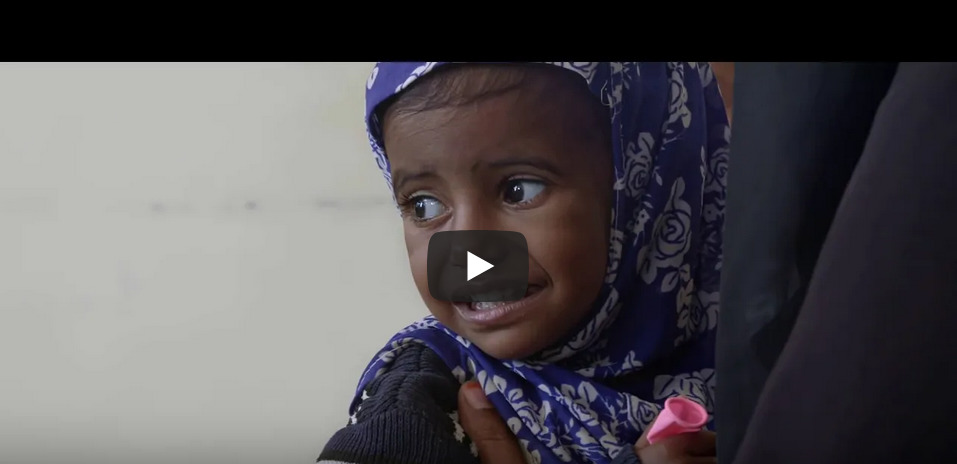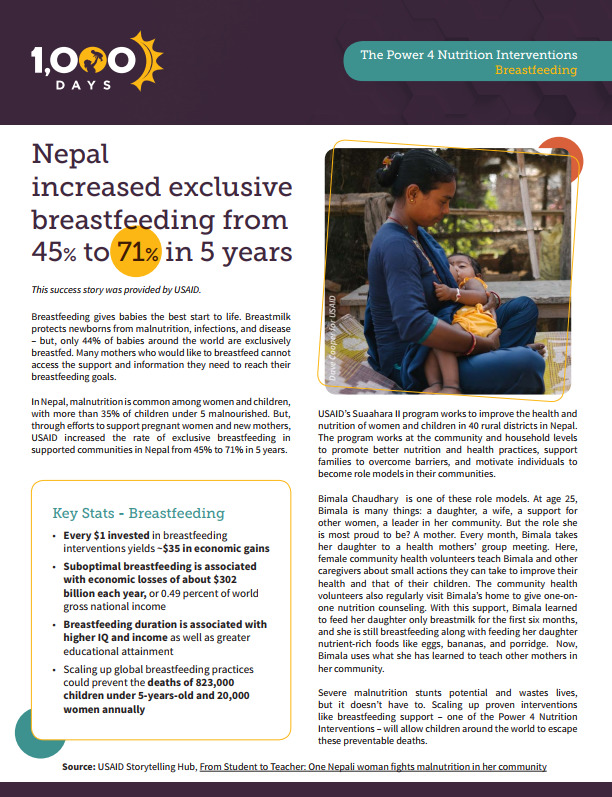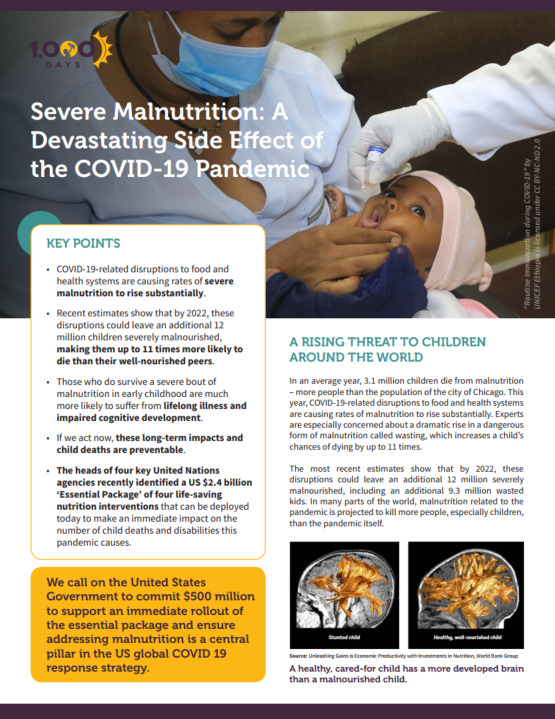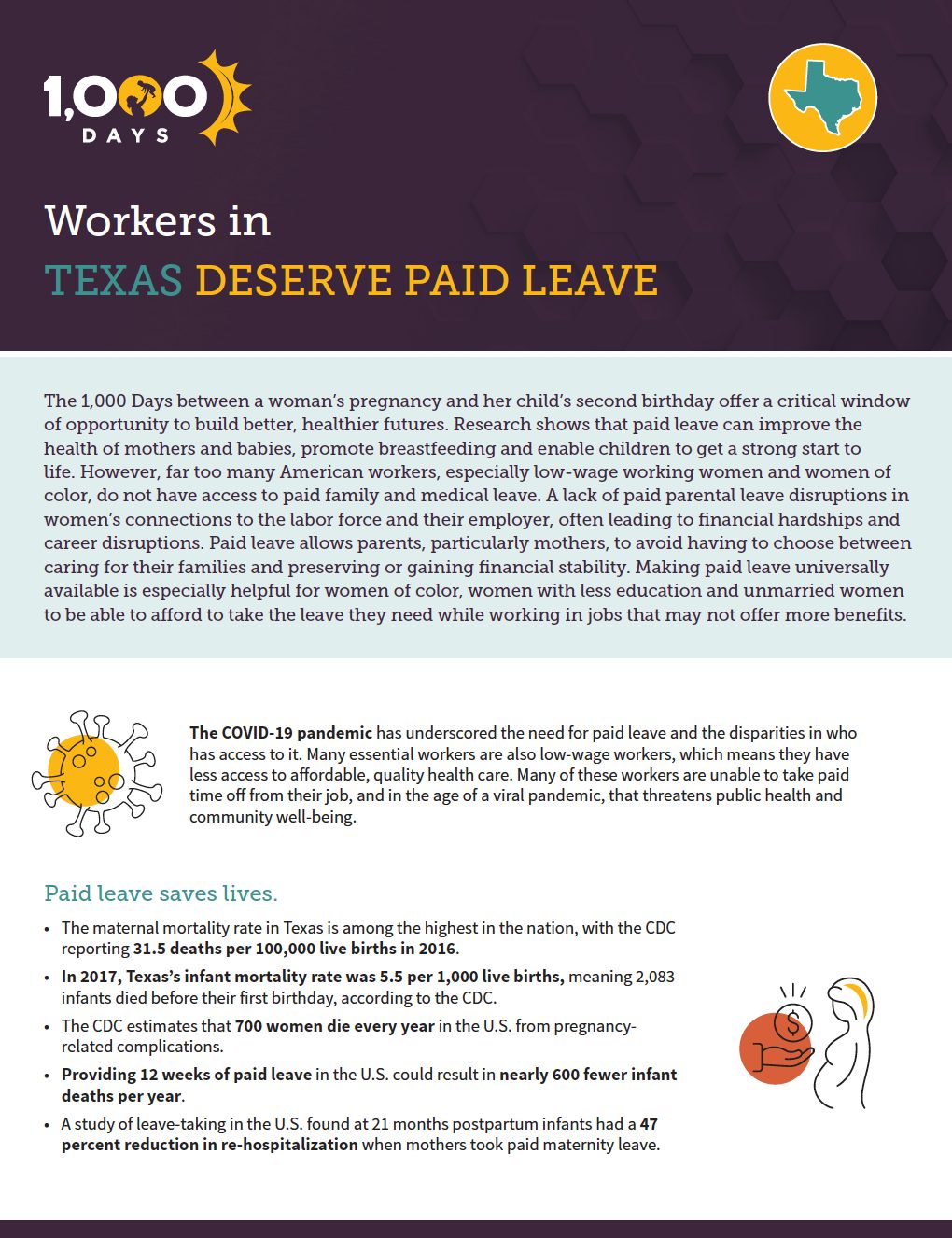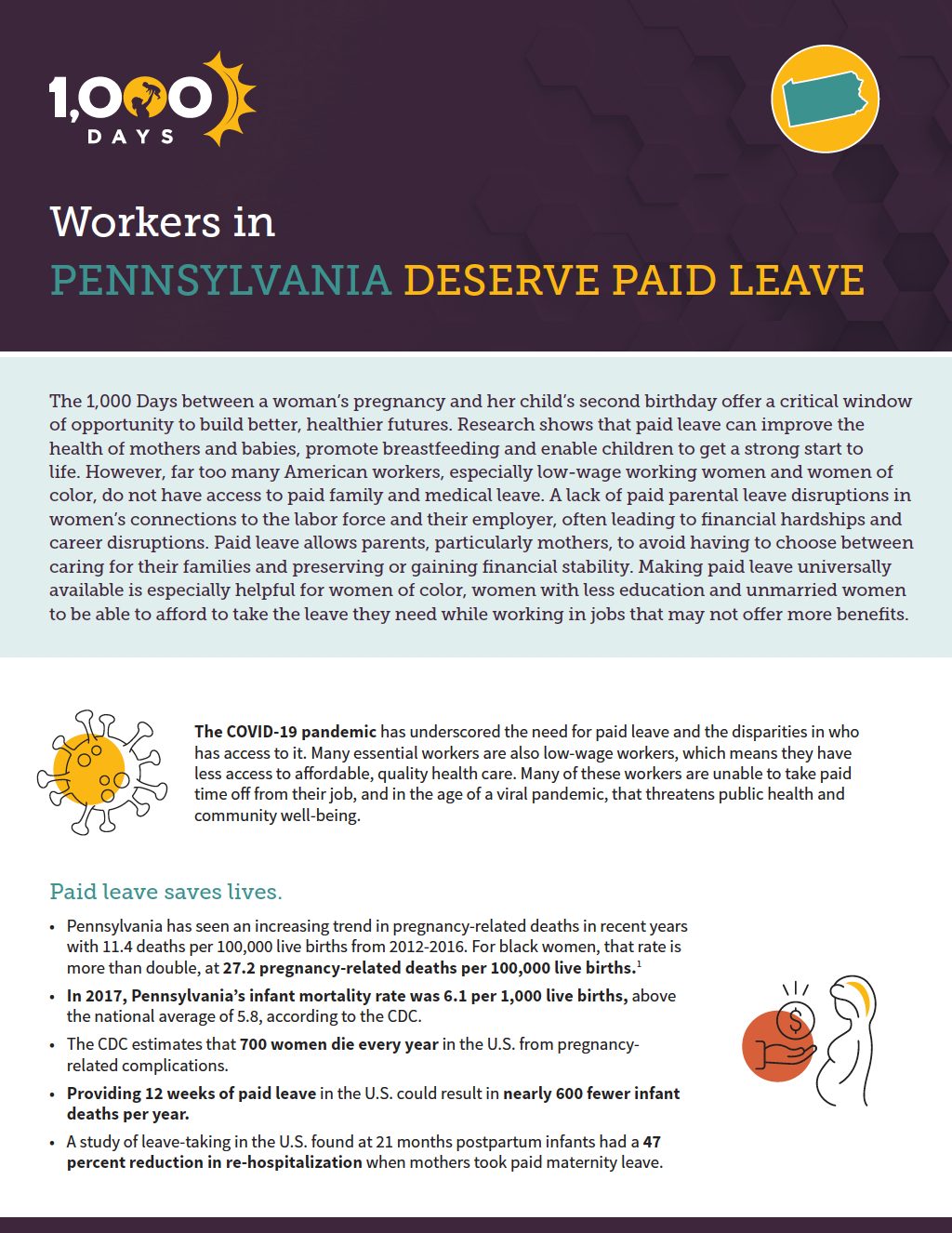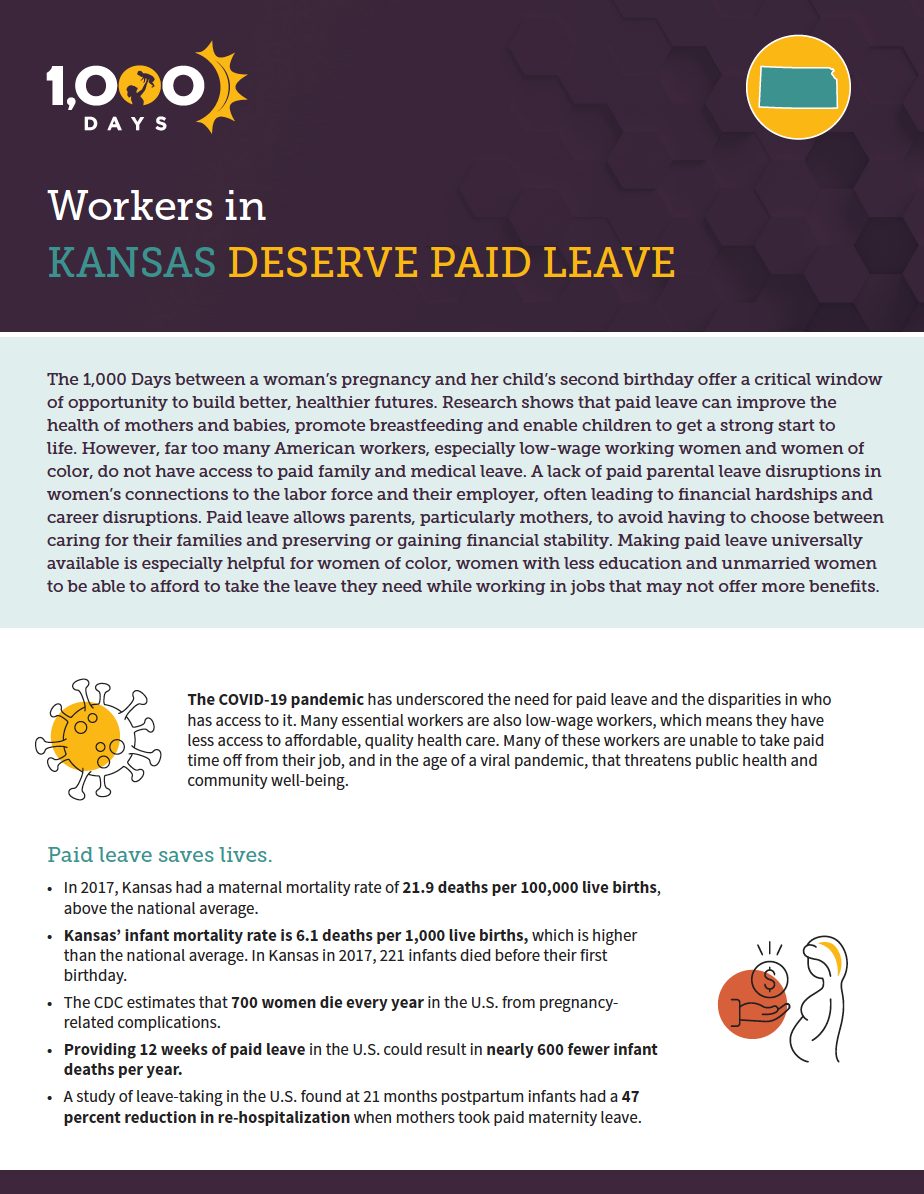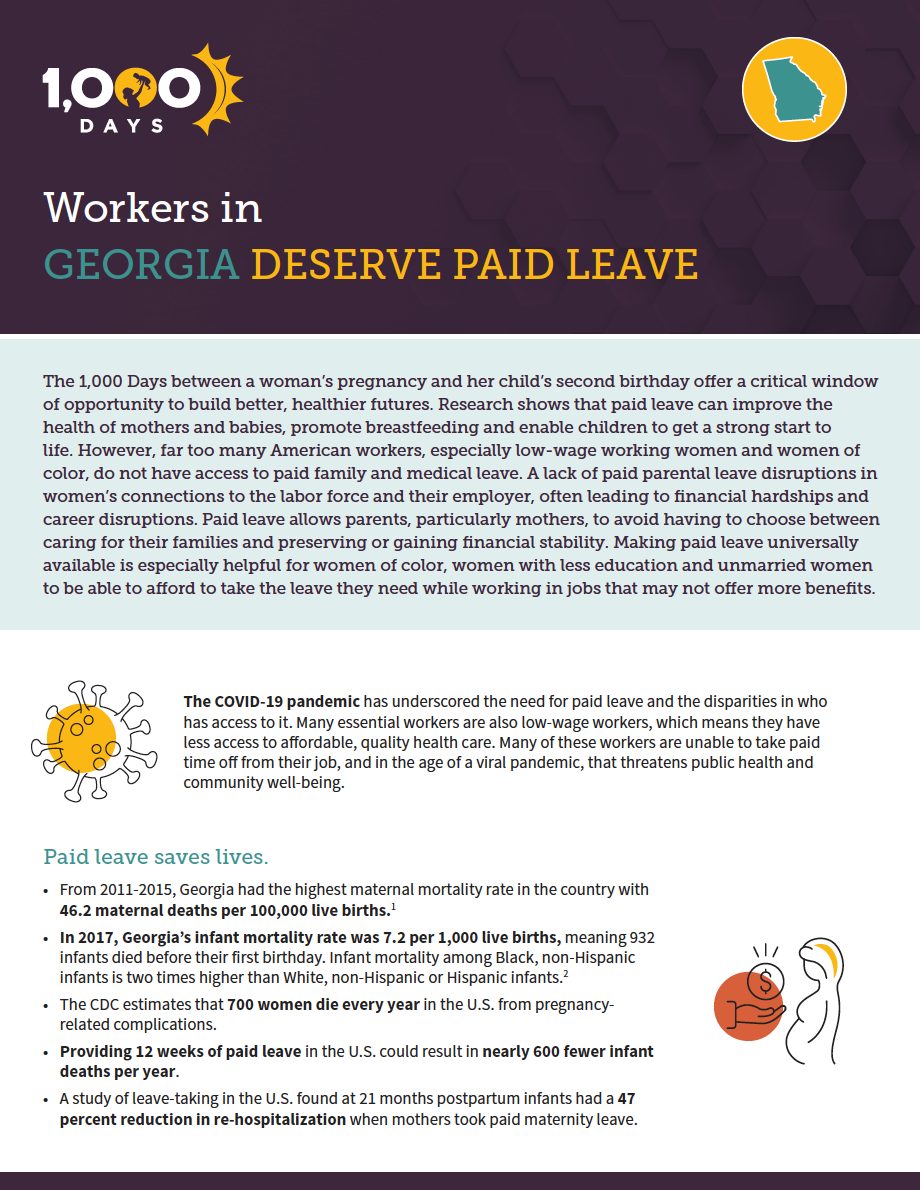COVID-19 and Malnutrition Video
The coronavirus pandemic has ravaged the globe and disrupted food supplies, restricted—and in many cases, shut down–access to nutritious meals and health services for millions of children and pregnant or breastfeeding women. When we invest in nutrition, we CAN build resiliency, reduce disparities, and create conditions to ensure today’s children are nourished in ways that secures their health today, tomorrow and into the future.


